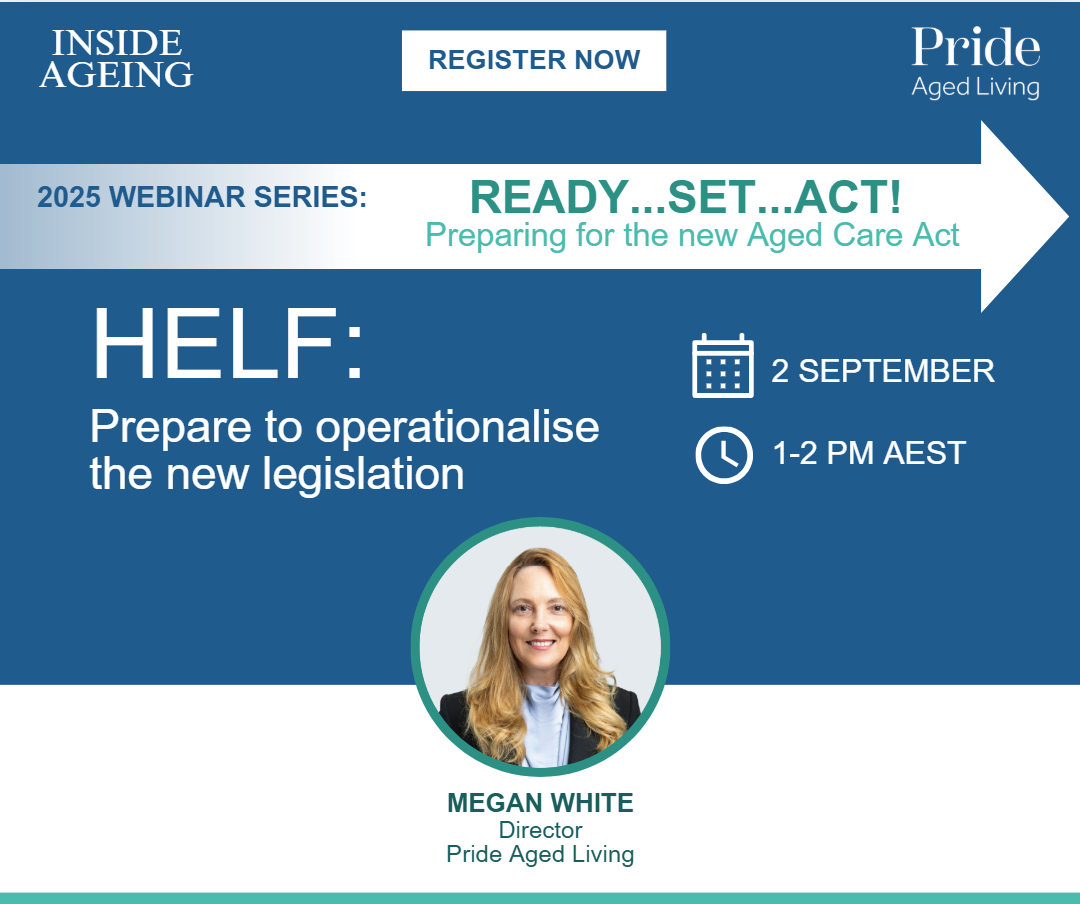Up and running or left behind?

Unless you’ve been living under a rock, you are acutely aware that July 1, 2025, marks the start date of the new Aged Care Act.
While the transition will continue well beyond July 1, 2025, there are some critical elements that residential providers should have addressed by June 30 2025.
We’ve asked our consultants for their thoughts on key areas and actions, and we've compiled these into the following checklists to help you get up and running, rather than be left behind when the clock strikes midnight on June 30 2025!
Clinical/Compliance
| Key areas | Actions |
|---|---|
The role of supporters is facilitative. Unlike legal representatives, supporters do not have the authority to make decisions. Allowed actions include:
|
|
| Use of restrictive practices only as a last resort |
|
| Suitability of responsible persons |
|
Operational
| Key areas | Actions |
|---|---|
| Resident contracts |
|
| Adapt to the removal of Extra Service status |
|
| Adapt to the replacement of Additional Services with Higher Everyday Living Fee (HELF) | See our: |
| Reconsider room pricing in light of the higher accommodation threshold $750,000 |
|
| Understand grandfathering provisions for Extra Service and Additional Service, and RAD |
|
| Indicative Registration Renewal Plan |
|
| Marketing Material |
|
| Website and MyAgedCare disclosures |
|
Governance
| Key areas | Actions |
|---|---|
| Understand and adapt to the registered provider framework |
|
| RAD and other Liquidity requirements |
|
| Related party loans |
|
| Review of Statement of Financial position |
|
| Financial impact of changes in ESS. AS/HELF and RAD retention |
|
| Regulator supervision level |
|
| Inform residents of the changes as relevant to them |
|
| New Aged Care Rules (draft) |
|
| Staff education and resources |
|
Join our webinar
We’re hosting a webinar with Inside Ageing on 2 September (rescheduled from 12 June): 'HELF: Prepare to operationalise the new legislation’

With July 1 just around the corner, is your organisation ready for the shift to the Higher Everyday Living Fee (HELF) and the changes in compliance management that come with it? We know that many organisations will need to review and adjust their approach to admissions and enhance service delivery processes.
Join us for a final preparation webinar designed to ensure you’re fully equipped for a smooth transition.
We’ll cover the essential steps you should have completed by now, highlight any last-minute checks, and offer guidance on executing your HELF transition effectively.
This session will walk you through key actions to take, potential pitfalls to avoid, and how to ensure compliance as the new Aged Care Act takes effect. Don’t miss this critical opportunity to fine-tune your strategy and guarantee a successful transition on July 1, 2025.
Topics we’ll cover:
• The Rules, final versions and implications
• Checklist
• Implementation pitfalls
• Ongoing responsibilities for AS and ESS residents
To learn more about the webinar and register, click here.
To find out how we can assist your organisation, contact Bruce.
Bruce Bailey
02 9068 0777
bruce.bailey@prideagedliving.com.au

